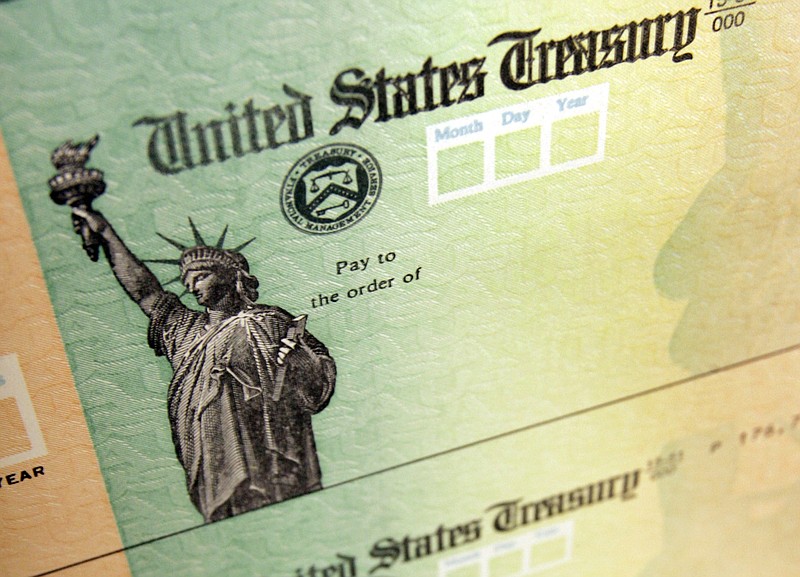WASHINGTON -- Officials at the Treasury Department and Internal Revenue Service said Friday that processing of the new round of stimulus payments has already begun, with the aim of having the first payments start showing up in bank accounts this weekend.
President Joe Biden signed the new $1.9 trillion rescue package on Thursday, after it won final passage in the House. The measure provides for payments to individuals of up to $1,400, with payments to a qualifying family of four of $5,600.
"The payments will be delivered automatically to taxpayers even as the IRS continues delivering regular tax refunds," IRS Commissioner Chuck Rettig said in a statement.
It is estimated that 85% of Americans will be eligible for the payments and the goal is to have millions of the payments disbursed in the next few weeks.
The relief measure, which passed on party-line votes in both the House and Senate, contains the third round of economic-impact payments. The first round passed last spring provided up to $1,200 per individual, and a second round of payments in December provided up to $600 per individual.
The latest package passed with no votes from Republicans, who objected to the size of the measure and argued it was not necessary given signs that the economy is beginning to recover.
Then-President Donald Trump called the payments in the $900 billion relief bill passed in December too small and Biden agreed, pushing the total for an individual up to $1,400 in the new package.
The latest round of relief payments will provide households with $1,400 for each adult, child and adult dependent, such as college students or elderly relatives. Adult dependents were not eligible to receive payments in the previous two rounds of payments.
The payments start declining for an individual once adjusted gross income exceeds $75,000 and go to zero once income hits $80,000. The payment starts declining for married couples when income exceeds $150,000 and goes to zero at $160,000.
Taxpayers who have provided bank information with the IRS will receive the direct-deposit payments, while others will get paper checks or debit cards mailed to them.
Officials said in the interest of speeding up the relief payments, the IRS will use the latest tax return available, either the 2019 return filed last year or the 2020 return that is due by April 15.
If a person's job situation changed last year because of the pandemic, which led to millions of people losing jobs or being forced to work reduced hours, officials said that the IRS will adjust the size of the new impact payments after the 2020 return has been filed and provide a supplemental payment if that is called for. Officials said those adjustments will be made by the IRS for people who have already filed their 2020 returns.
Officials said they wanted to handle the payments this way rather than waiting for the 2020 tax return to be filed in the interest of speeding payments to taxpayers.
Meanwhile, nearly 7 million tax filers are in limbo and facing substantial delays in getting refunds so far this tax filing season, as the Internal Revenue Service struggles to keep up with the demands of issuing stimulus checks and implementing myriad tax code changes from coronavirus relief packages.
There are 6.7 million returns that have not yet been processed, over three times the number in the same period last year, when fewer than 2 million returns faced delayed processing, IRS data shows.
The delays are largely a result of a year's worth of extraordinary stimulus measures that have created more complicated tax returns for millions of Americans. The IRS was already straining to adjust after the December stimulus package. The newest package adds even more tasks for the agency, including the new round of one-time payments, making changes to tax rules to help unemployed workers and paying out a new child tax benefit.
Many Americans who did not receive the correct stimulus payments in January or last year are filing for additional money now. And some low-income filers are newly eligible for more tax credits than usual. The IRS is having to manually review a lot of these returns, a slow process that is delaying refunds for millions of low-income families, after the agency has faced a decade's worth of budget cuts and staffing losses.
Information for this article was contributed by Martin Crutsinger of The Associated Press; and by Heather Long and Tony Romm of The Washington Post

